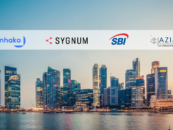
Thailand Set to Block Access to Unauthorised Crypto Platforms
by Fintech News Singapore April 23, 2024Thailand’s Securities and Exchange Commission (SEC), in conjunction with the Ministry of Digital Economy and Society and other relevant agencies, has initiated measures to block unauthorised access to digital asset service providers’ platforms.
This move aims to enhance law enforcement efficiency and prevent the laundering of money obtained through illegal activities.
During a recent meeting on 19 April 2024, the Technology Crime Prevention and Suppression Committee mandated the SEC to identify and report unauthorised digital asset service providers to the ministry.
The ministry will then proceed to block these platforms, thereby disrupting channels that could potentially be used for laundering illicit funds.

Pornanong Busaratrakul
Pornanong Busaratrakul, Secretary-General of the SEC, outlined the process that follows this directive.
The SEC will coordinate with the Ministry of Digital Economy and Society to prepare a petition to the court, ensuring that platform users are given ample time to manage their accounts before access is restricted.
This strategy mirrors actions taken by other countries, such as India and the Philippines, where unauthorised platforms are similarly blocked to safeguard consumers and combat financial crimes.
Previously, the SEC has taken legal actions against unauthorised operators soliciting digital asset services within Thailand, including high-profile cases involving foreign platforms like Binance and Bybit.
The SEC urges users of these unauthorised platforms to promptly withdraw their assets and advises the public and investors to exercise caution. Unlicensed operators do not offer legal protection, increasing the risk of scams and money laundering activities.
For verification of licensed operators and reporting of suspicious activities, the SEC provides resources such as the “SEC Check First” app and a dedicated whistleblower center accessible via their website and social platforms.
Featured image credit: SEC





